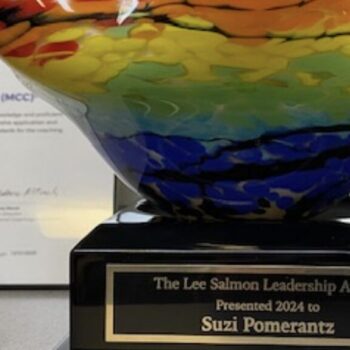
Reframing as an Essential Coaching Strategy and Tool
Alicia takes a similar approach in working with Susan. Susan can be encouraged to reframe the problem she is experiencing with her direct report, Ralph. Susan can be encouraged to focus on Ralph’s strengths and on ways in which Ralph can more frequently be placed in settings where these strengths are effectively employed. Perhaps, he could be more actively involved in strategic planning, so that his tendency to dream becomes appropriate and helpful to the organization.
Ralph might also be asked to assist with new employee orientation in the company, making use of his capacity to inspire and motivate. He might be assigned to more start-up operations or given the opportunity to work autonomously on more projects. In order for any of these options to be explored, Susan must first be willing to reframe her perceptions of Ralph, focusing on his strengths, achievements and potential, rather than his weaknesses or failures. This is the essence of an appreciative approach to professional coaching.
Shifting Attention
This second way in which to reframe context requires a shift in attention—to another aspect of the context. To begin with, we can turn to an important distinction drawn by Michael Polanyi (scientist turned philosopher) between that which we are attending to and that which we are attending from (Polanyi, 1969). There is always some conceptual (and even physiological) foundation from which we are attending when pointing to something. Why is this person pointing to this specific object, person or event in their writing, speaking or physical behavior (literally points toward something)? This focus on the source of attention rather than object of attention is a fundamental re-framing operation.
Polanyi notes that even scientists can be asked to identify the reason why they are doing research on this specific phenomenon rather than some other phenomenon. The reason for their choice—their priority—is never “rational” or “scientific.” It always has to do with the scientist’s personal emotions (“I find this interesting” or “I find this to be a great challenge.”) Or it has to do with their assessment of values (“This is an important issue to address.” or “This can make a real difference in the quality of human life.”) A third possibility is that their scientific engagement is based on a set of assumptions about what constitutes “good science” and “valid” inferences regarding data obtained.
One of the most powerful reframing questions for a professional coach to ask concerns that from which their client is attending: “Why is it important that you are focusing on this issue?” “What makes you think this is valid?” The reframing can even be invited in the form of a new narrative: “Tell me about the reasons why you have chosen to pick this particular project.” “It might be informative for you to share the reasons why you want this change to take place.” It might also be valuable to shift attention by asserting something that is challenging that from which one’s client is attending: “Your conclusion is truly astounding. Tell me about the reasoning.” “I could see someone taking a very different view. Why is your perspective of value?”
- Posted by William Bergquist
- On May 10, 2024
- 0 Comment


Leave Reply